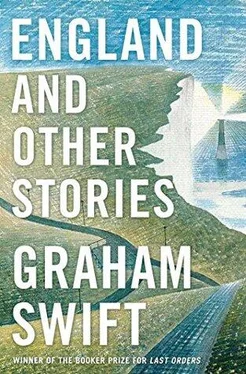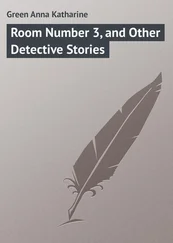And now look.
There was something particularly entrancing, he couldn’t say why, about this physical act of steering Lucy in her buggy, about having his hands on the handles and feeling through them the bumps and swerves that she felt through her whole body. These rides seemed to induce in her such a simple infallible delight, she became a kind of living cargo of happiness, and he could sometimes find himself, quite unselfconsciously, echoing out loud her burblings, as if infected (at last, at fifty-six!) with mindless joie de vivre .
His father had spoken those disenchanted words. But these babblings! And of course he didn’t tell Julia that, while she put her feet up, he was only too keen to push Lucy to the park yet again.
Lucy, of course, had no control. She had no power of decision, and she had no control literally. She relied on him entirely to steer her. The fact that she did so with such delirious trust made his own steps light, and right now he loved her absolutely because her helpless burblings matched, though entirely benignly, the fact that he’d lost all control of his life and that she was the product of that loss of control.
It was a mild day in late February. Spring was in the air. A few innocuous white clouds hung in the sky. Crocuses were poking through by the entrance to the park.
When had he lost control? He hadn’t lost control of the business of making money, he’d been a dab hand at that. He hadn’t even lost control of the money itself, though he’d handed over large chunks of it. But when had he lost control of himself, of his life, of who he was?
When he was twenty-eight, say, he’d felt pretty much in control. At least he’d felt a good notch surer of himself than when he’d been eighteen or twenty-one — when all doors are supposed to open. He’d even say now — now he was exactly twice twenty-eight — that twenty-eight was actually the age he was inside. He was a twenty-eight-year-old in heavy disguise.
But by the time he was thirty-eight, or certainly forty-five, the sense he’d once had long ago as a little kid — long before that bleak interview with his father — that life and growing up could only ever be about gaining more and more control, a steady upward graph, had deserted him. It wasn’t that he was losing control in some ways but gaining it in others, he was seriously and centrally losing control, and he knew it. And he knew that very probably this loss of control would only increase and accelerate for the rest of his life, he’d crossed some sort of dire threshold, till one day he’d be approaching his death in a state of utter and terrifying loss of control, never having — to put it mildly — put his affairs in order.
When he understood this he did what most people do. He ignored it. He had another drink. Was putting your affairs in order the purpose of life anyway? Affairs! A poor joke of a word. It was his affairs, having them, that had got him into this mess. Once, when he was twenty-eight — or was it thirty-five? — he’d thought that having affairs and their rather thrilling disorder was actually the stuff of life, if not maybe its purpose. He was, he’d have to confess, quite good at it.
Did anyone put their affairs (other sense) in order? People said, didn’t they — people not like his father — that you should seize life, grasp it while it was there? Which sounded like taking control, big-time. But it also sounded exactly like what he did when he toppled — dived — into another affair. It was taking control, but it was also like going full-tilt for the complete opposite.
By his forties he’d started to do something he’d never done before. He looked at people. That is, he studied them and wondered about them, as if he might be the other side of a glass wall. Did they look out of control, did they look as if they all secretly felt like him? No. The amazing thing was that they didn’t. They looked as if they were pretty much holding it together, as if they were moving along paths they felt they should be moving along. How did they manage it?
He’d never had this feeling of a glass wall before, he’d never felt he was an observer, not a doer. Though what he’d been doing, perhaps for some time now, had been losing control.
And now here he was pushing a buggy along a park path — an act of control and calm purpose if ever there was — with a child in the buggy astonishingly remote from him in years yet to whom he felt closer than anything else in the world.
It was a Sunday morning. The sun, with a real warmth to it, seemed to be seeing off the clouds and the park was doing good business. There were other people pushing buggies, like him, either towards or back from the little mecca of the play area, with its brightly coloured attractions, that had opened recently and been an instant success. On Sunday mornings it could heave. It was hard to tell if adults or small children dominated. There were buggy-parking issues. There were multiple-child buggies. You understood at once one of the principal local activities: it was to breed and to do so with a certain public self-congratulation.
But there were also joggers, in Lycra, with headsets. There were people with dogs. There were also people — they were professionals — with lots of dogs, whole packs of them, because their owners were too busy, even on a Sunday, or too lazy to walk them, so they paid someone. Money, the things it could do. Even some of the buggy-pushers would be hired live-in nannies, speaking foreign languages. Nannies! He’d had a thing once — he’d lost control — with a nanny, called Consuelo. It hadn’t lasted long, not long enough even to call it an affair. Now, spotting the nannies, and even though Julia wasn’t around to catch him looking, he wasn’t even tempted.
There were about as many dogs as buggies. And — setting aside the nannies — not a few of the buggy-pushers and dog-walkers had a similar appearance. They were men, otherwise unaccompanied. They weren’t young. They were often rather chubby, jowly or flushed of face and their hair was receding, if they weren’t in fact bald. If they’d had looks once, they’d lost them. Yet for all this, they didn’t appear out of control. Far from it. They were in charge of a buggy or a dog after all. Some of them even had a pretty lordly air and issued, to the dogs, bellowing commands.
In other words (though he refused to acknowledge this outright) they looked like him. And sometimes, in the case of the buggy-pushers, the age of the child or even children they were pushing told the whole story. It was a bit like his story.
But he was pushing Lucy. No one else was pushing Lucy. In a little while he’d unstrap her from the buggy and place her with a father’s tender care — a quite experienced father’s care — on one of the contraptions in the play area. She wasn’t old enough to be more than placed briefly in this way, but the mere contact with the colourful apparatus seemed enough for her. It gave the buggy ride its goal, but he felt that for her as well as for him it was the ride itself that was really the thing.
All the time she was out of the buggy and just perched on one of the bits of equipment his hands would hover close to her, his whole body would want to shield her, as much from the roughness of other children and the intrusions of other parents as from any other form of harm. He’d keep guard of her and would think while he did so, as he would at other times of such close vigilance, of what would become of her in later life, of how her life would be when he was gone, of the possibility, which was not at all unreal, of his being gone before she was a woman with whom he might have a grown-up conversation. He’d feel a punishing stab. But he had her burblings.
They approached the play area. But the whole park, with its tree-lined paths and expanses of grass, its peeping bulbs and its joggers, dog-walkers and buggies, was like a play area, and on this smiling Sunday morning was the very image of communal well-being. It was the serener broader version of the kids’ place, without the latter’s tendency (he could see that this morning it was thickly patronised) to teeter into stressful frenzy. In truth, he didn’t greatly like the play area, but Lucy wasn’t able to say to him, understandingly and exoneratingly, ‘It’s okay, we don’t really have to go there.’
Читать дальше












